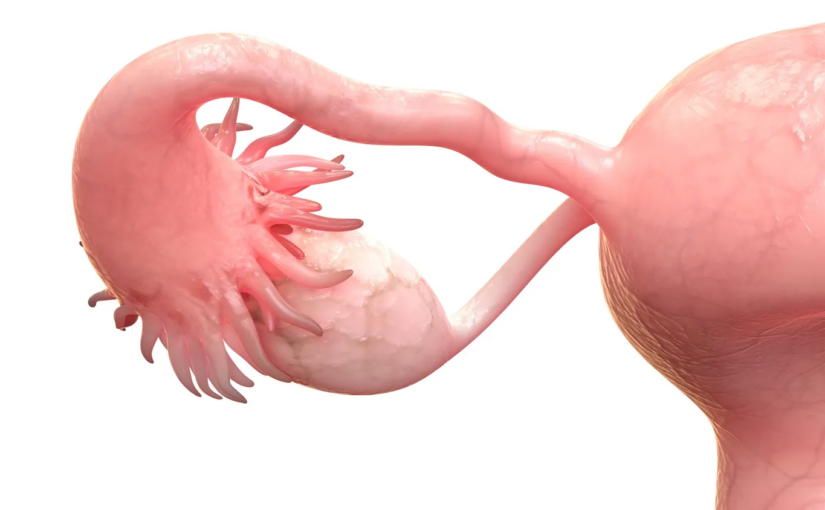by Lindsay Fischer
A new murine monoclonal antibody B43.12 is under investigation in combination with paclitaxel and carboplatin as a treatment option for patients with advanced epithelial ovarian cancer.
Oregovomab (Ovarex) in combination with paclitaxel and carboplatin for patients with advanced epithelial ovarian cancer is being tested in the phase 3 FLORA-5 trial (NCT04498117). Oregovomab is an investigational monoclonal antibody with promising phase 2 data. Oregovomab and the FLORA-5 trial were highlighted during the 2022 Society of Gynecologic Oncology Annual Meeting on Women’s Cancer in March.1
“Oregovomab is an investigational monoclonal antibody that has been studied in clinical trials for patients with ovarian cancer whose tumor cells express the tumor-associated antigen CA-125 (MUC16),” the investigators noted in a poster presentation during the meeting. “Oregovomab is a novel immunotherapy that enhances the immune response to CA-125.”
Oregovomab is a murine monoclonal antibody B43.12, an IgG1k subclass immunoglobin that functions by binding to CA-125 with high affinity. The compound’s interactions with circulating and tissue-associated CA-125 induce robust immune responses.
The phase 3 double-blind, placebo-controlled, multicenter study has been designed to compare the safety and efficacy of oregovomab plus chemotherapy with placebo plus chemotherapy. Patients will be randomly assigned 1:1 to receive either 2 mg of intravenous oregovomab or placebo, along with 6 standard cycles of paclitaxel/carboplatin.
Additionally, investigators will seek to confirm the clinical benefit observed in a randomized phase 2 study (NCT01616303), which demonstrated that adding oregovomab to paclitaxel and carboplatin resulted in clinically significant improvements in progression-free survival (PFS) and overall survival (OS).2
At a median follow-up of 42 months, the addition of oregovomab yielded a median PFS of 41.8 months (95% CI, 21.8-not estimable [NE]) compared with 12.2 months (95% CI, 10.4-18.6) with standard chemotherapy (HR, 0.46, 95% CI 0.28-0.70; P =.0027). Regarding OS, the median was not reached with the oregovomab group (45.2-NE) but was 43.2 months (31.8-NE) in the control group (HR, 0.35; 95% CI, 0.16-0.74; P =.043)
Investigators noted that the trial will also seek to evaluate the role of oregovomab as a neoadjuvant chemotherapy option.
To be eligible for enrollment, patients must have already received optimal debulking surgery and be either about to begin chemotherapy (cohort 1) or have completed 3 cycles of neoadjuvant therapy and about to resume 3 additional cycles of chemotherapy (cohort 2). Patients in each cohort will be randomly assigned to both treatment regimens.
Patients in cohort 1 will receive either oregovomab or placebo on cycles 1, 3, 5, and 5+ of chemotherapy for 12 weeks. Meanwhile, patients in cohort 2 will receive oregovomab or placebo on cycles 4, 6, 6+ for 6 weeks, and 6+ for 18 weeks. Both groups will receive post-treatment follow-up and survival assessment.
The primary objective is PFS, with secondary objectives including OS, safety, and uality of life. Stratification factors include FIGO stage (IIIA/IIIB vs IIIC/IV) and residual disease status after surgical debulking.
Key eligibility criteria for enrollment also will include a recent diagnosis of epithelial ovarian, fallopian tube, or peritoneal origin FIGO stage III or IV cancer; optimal debulking surgery to R1 or R0 stage; an ECOG performance status of 0 or 1; serum CA-125 levels greater or equal to 50 U/mL prior to surgery or chemotherapy; and adequate bone marrow liver, or renal function.
Those who test positive for BRCA 1/2 germ-line gene mutations, have carcinoma, or previously received treatment with other immune-suppressive drugs are excluded from enrollment. Furthermore, if patients are expected to require additional treatment with PARP inhibitors, bevacizumab (Avastin) or any other investigational agents; or if they harbor active autoimmune diseases, serious illness, clinically significant infections; or if they have a history of more than 1 debulking surgery, they will not be able to enroll.
References
1. Secord AA, Barroilhet L, Gupta S, et al. FLORA-5/GOG-3035: a phase III double blind placebo controlled multicenter clinical study of front-line chemo-immunotherapy (paclitaxel and carboplatin +/- ore- govomab) in patients with advanced epithelial ovarian cancer. Present- ed at: SGO Annual Meeting on Women’s Cancer; March 18-21, 2022; Phoenix, AZ. Abstract 298.
2. Brewer M, Angioli R, Scambia G, et al. Front-line chemo-immunotherapy with carboplatin-paclitaxel using oregovomab indirect immunization in advanced ovarian cancer: a randomized phase II study. Gynecol Oncol. 2020;156(3):523-529. doi:10.1016/j.ygyno.2019.12.024.
This article was published by Targeted Oncology.


